Isobel McArthur  After Jane Austen
After Jane Austen NICK HERN BOOKS London www.nickhernbooks.co.uk IntroductionIsobel McArthurOn the Origins and Spirit of the ShowPride and Prejudice* (*sort of) was first performed at the Tron Theatre in Glasgow, 2018. I suspect that it is the inherent humour and heart of Glaswegian audiences which initially imbued this text with the flare, wit and generosity of spirit that I hope are still at the core of it. It should feel affectionate-whilst-knowing, front-footed, funny, fourth-wall-breaking and utterly celebratory. On Music In the original production, songs were sung over specially composed karaoke backing tracks, with some live instrumentation performed by the actors. Whilst designed to be performed by six actor-musicians, the show need not necessarily demand instrumentation or professionally trained singers. On Doubling This is an adaptation that adores its source text. On Doubling This is an adaptation that adores its source text.
NICK HERN BOOKS London www.nickhernbooks.co.uk IntroductionIsobel McArthurOn the Origins and Spirit of the ShowPride and Prejudice* (*sort of) was first performed at the Tron Theatre in Glasgow, 2018. I suspect that it is the inherent humour and heart of Glaswegian audiences which initially imbued this text with the flare, wit and generosity of spirit that I hope are still at the core of it. It should feel affectionate-whilst-knowing, front-footed, funny, fourth-wall-breaking and utterly celebratory. On Music In the original production, songs were sung over specially composed karaoke backing tracks, with some live instrumentation performed by the actors. Whilst designed to be performed by six actor-musicians, the show need not necessarily demand instrumentation or professionally trained singers. On Doubling This is an adaptation that adores its source text. On Doubling This is an adaptation that adores its source text.
However, a further layer of reality and humour presents itself because of doubling (actually, multirolling) and the pace of that in live performance. The joke that we are all in on (that there are only just enough pairs of hands to pull this off) forms a big part of the overall presentation of Pride and Prejudice* (*sort of) and much of an audiences enjoyment can be derived from seeing which performer will next pop up as which character, if they will make their costumes changes in time for their next entrance, etc. There is a sense of impressive resourcefulness in seeing six actors play all the parts in a way that speaks to the circumstances of many of the women in Jane Austens novels but that also amuses audiences and stretches performers. This means that some of the characters can be worn lightly and, in many moments, the personality of the actor can shine through. I would encourage anyone approaching the text to experiment with these elements in production. On Accents and Dialect Parts of this script were written with specific actors in mind.
Where many period dramas are dominated by received pronunciation (RP), our original ensemble drew on their own regional-accent diversity to build the characters, meaning we heard voices from Glasgow, Newry, South London, Aberdeen, Manchester, West Yorkshire, Edinburgh and more. There are many words which sit better in different mouths (wee, mard-arse, etc.), and which are ways of speaking particular to these different regions. Anyone performing the show should feel free to alter these words to something which suits the natural voice of the performer in each case. On Casting Im sure we all know just how important it is to create more opportunities for female performers to play a wide range of nuanced, interesting and varied roles in the theatre. However, there are also many artistic reasons why an all-female cast is so perfect for the telling of this particular story. Pride and Prejudice is about the plight of five daughters.
Their future hangs in the balance because none of them were born male. So, at its very heart, this was always a womans story. However, the book is also set during the Napoleonic Wars (something less frequently touched on in adaptations), meaning a disproportionate amount of household servants were women at the time. Indeed, as one servant explains towards the end of Act One, fines were imposed for hiring male servants who might otherwise be usefully employed as soldiers. It seemed crucial that a story so tied up in class and societal status (and one which, itself, has been afforded quite a loftily superior brand of cultural capital) was told by servants. But it also made historical sense for these servants to be women.
This way, we can watch six women embody their employers, including those who are men, in an act of doubly transgressive triumph. Jane Austen could not publish under her own name during her lifetime because of her gender. Im lucky enough to live in a time when I can put my name and hers on the front of this book and we, as a company, are all so grateful to her for writing this brilliant story. Pride and Prejudice* (*sort of) was first performed at the Tron Theatre, Glasgow, on 29 June 2018, produced by Tron Theatre Company and Blood of the Young. The play was subsequently revived on tour of the UK in 2019, produced by the Royal Lyceum Theatre Edinburgh, Tron Theatre Company and Blood of the Young, with co-producers Birmingham Repertory Theatre, Bristol Old Vic, Leeds Playhouse, Northern Stage, Nuffield Southampton Theatres and Oxford Playhouse. The cast was as follows: TORI BURGESS FELIXE FORDE CHRISTINA GORDON HANNAH JARRETT-SCOTT ISOBEL MCARTHUR MEGHAN TYLER
| Director | Paul Brotherston |
| Designer | Ana Ins Jabares-Pita |
| Musical Supervisor | MJ McCarthy |
| Lighting Designer | Simon Hayes |
| Sound Designer | MJ McCarthy |
| Choreographer | EJ Boyle |
| Associate Director | Shilpa T-Hyland |
| Dramaturgy | Johnny McKnight |
| Associate Designer | Anna Orton |
| Associate Sound Designer | Calum Paterson |
| Casting Director | Laura Donnelly CDG (Additional Casting) |
PRIDE AND PREJUDICE *

Isobel McArthur
after Jane Austen
Characters THE SERVANTS
A phalanx of housekeepers, chambermaids, cleaners and other servant staff from Miss Austens novels.
Our narrators. They transcend all worlds, all times and steer the course of the action in ways unnoticed by the Master characters. They include ANNE CLARA EFFIE FLO MAISIE TILLIE all of whom play the servants of any household as required (meaning masters may refer to them by other names). THE MASTERS MRS BENNET, mother to five unmarried daughters. Neurotic MR BENNET, her husband (played by an armchair facing upstage) JANE BENNET, the eldest Bennet daughter. Beautiful ELIZABETH BENNET, the second-eldest Bennet daughter. Our heroine MARY BENNET, the middle Bennet child.
A social outcast. Uncomfortable, bookish. A certain kind of intelligent KITTY BENNET, the second-youngest Bennet daughter. Always lumped in with and overshadowed by her younger sister LYDIA BENNET, the youngest Bennet at fifteen. Loud. Precocious.
Prone to violence, especially around Kitty MR COLLINS, their cousin, once removed. A feckless clergyman CHARLOTTE LUCAS, best friend to Elizabeth CHARLES BINGLEY, a rich, single young man. Extremely affable MISS CAROLINE BINGLEY, his insufferably snobby sister FITZWILLIAM DARCY, another rich, single young man. Friends with Bingley. Reserved. Prone to negativity GEORGE WICKHAM, a handsome and intoxicatingly charming soldier LADY CATHERINE DE BOURGH, Darcys incredibly rich aunt MRS GARDINER, aunt to the Bennet girls.
Likeable, caring MR GARDINER, her adorable husbandDoubling ACTOR 1 Flo, Mrs Bennet, Fitzwilliam Darcy ACTOR 2 Maisie, Kitty Bennet, Mr Collins, George Wickham, Mrs Gardiner ACTOR 3 Effie, Elizabeth Bennet ACTOR 4 Clara, Jane Bennet, Lady Catherine de Bourgh ACTOR 5 Anne, Mary Bennet, Lydia Bennet, Mr Gardiner ACTOR 6 Tillie, Charlotte Lucas, Charles Bingley, Miss Bingley
Next page
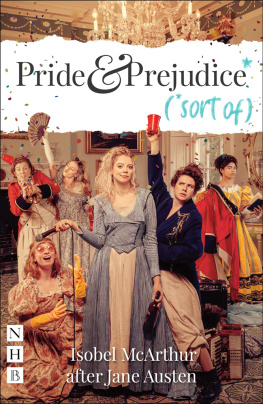

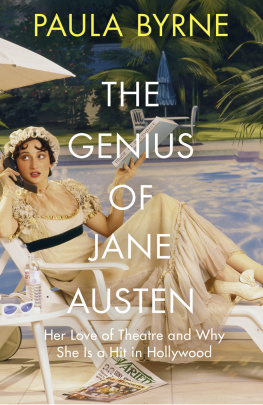
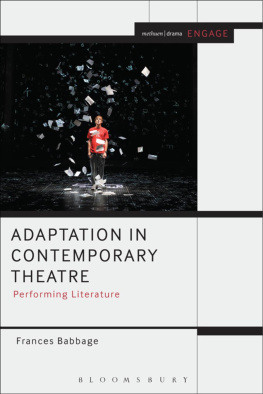
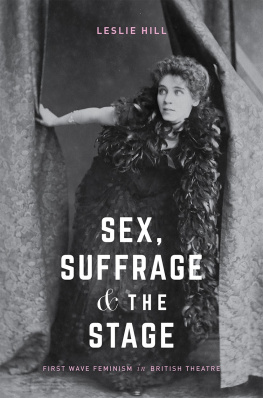
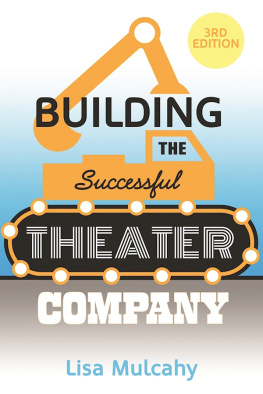
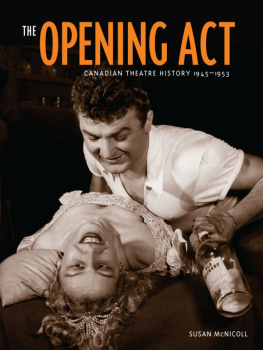
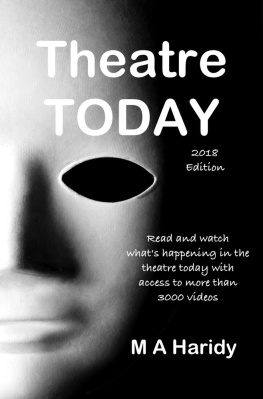
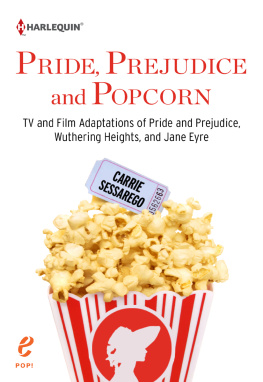
 After Jane Austen
After Jane Austen NICK HERN BOOKS London www.nickhernbooks.co.uk IntroductionIsobel McArthurOn the Origins and Spirit of the ShowPride and Prejudice* (*sort of) was first performed at the Tron Theatre in Glasgow, 2018. I suspect that it is the inherent humour and heart of Glaswegian audiences which initially imbued this text with the flare, wit and generosity of spirit that I hope are still at the core of it. It should feel affectionate-whilst-knowing, front-footed, funny, fourth-wall-breaking and utterly celebratory. On Music In the original production, songs were sung over specially composed karaoke backing tracks, with some live instrumentation performed by the actors. Whilst designed to be performed by six actor-musicians, the show need not necessarily demand instrumentation or professionally trained singers. On Doubling This is an adaptation that adores its source text. On Doubling This is an adaptation that adores its source text.
NICK HERN BOOKS London www.nickhernbooks.co.uk IntroductionIsobel McArthurOn the Origins and Spirit of the ShowPride and Prejudice* (*sort of) was first performed at the Tron Theatre in Glasgow, 2018. I suspect that it is the inherent humour and heart of Glaswegian audiences which initially imbued this text with the flare, wit and generosity of spirit that I hope are still at the core of it. It should feel affectionate-whilst-knowing, front-footed, funny, fourth-wall-breaking and utterly celebratory. On Music In the original production, songs were sung over specially composed karaoke backing tracks, with some live instrumentation performed by the actors. Whilst designed to be performed by six actor-musicians, the show need not necessarily demand instrumentation or professionally trained singers. On Doubling This is an adaptation that adores its source text. On Doubling This is an adaptation that adores its source text. Isobel McArthur after Jane Austen Characters THE SERVANTS A phalanx of housekeepers, chambermaids, cleaners and other servant staff from Miss Austens novels.
Isobel McArthur after Jane Austen Characters THE SERVANTS A phalanx of housekeepers, chambermaids, cleaners and other servant staff from Miss Austens novels.